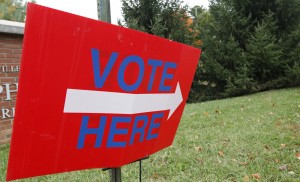 California’s Public Records Act survived a near miss last week. The EFF reports that the California legislature passed a bill last week that included a trailer to cut CPRA funding. The trailer bill would have made compliance with the CPRA optional for local governments.
California’s Public Records Act survived a near miss last week. The EFF reports that the California legislature passed a bill last week that included a trailer to cut CPRA funding. The trailer bill would have made compliance with the CPRA optional for local governments.
Thanks to pressure from activists, the bill was replaced, and the CPRA language removed. But it’s still sitting on Gov. Brown’s desk.
California’s Public Records Act, codified at Cal. Gov. Code §6250 et seq. is a state version of the Federal Freedom of Information Act (FOIA). It is designed to help citizens access the papers and records of state agencies. It covers all public records, defined in Cal. Gov. Code §6252 (e) as “any writing containing information relating to the conduct of the public’s business prepared, owned, used, or retained by any state or local agency regardless of physical form or characteristics.” It also includes “Writings,” defined at §6252(g) as “any handwriting, typewriting, printing, photostating, photographing, photocopying, transmitting by electronic mail or facsimile, and every other means of recording upon any tangible thing any form of communication or representation, including letters, words, pictures, sounds, or symbols, or combinations thereof, and any record thereby created, regardless of the manner in which the record has been stored.”
 The Foreign Intelligence Surveillance Court has created a public docket for declassified opinions.
The Foreign Intelligence Surveillance Court has created a public docket for declassified opinions.
 In 1982 Hobbs was working as a photographer on a Russian cruise ship where he had a brief affair with a Russian waitress. Based on the experience, he wrote a song, “Natasha” about an ill-fated romance between a man from the U.K. and a Ukrainian woman. In 1983, he registered his copyright to “Natasha” in the United Kingdom and sent the song to several music publishers, including a company that published songs composed by Elton John and Bernard Taupin. Hobbs’s efforts to find a publisher for “Natasha” were unsuccessful. In 1985, Elton John released his very successful song, “Nikita,” in which a singer from “the west” describes his love for Nikita, whom the singer saw “by the wall” and who is on the other side of a “line” held in by “guns and gates.” Hobbs filed a copyright infringement claim 27 years later. The district court dismissed. The Seventh Circuit affirmed, finding that the songs were not substantially similar. The Copyright Act does not protect general ideas, such as a romance between a western man and a woman from behind the iron curtain, but only the particular expression of an idea.
In 1982 Hobbs was working as a photographer on a Russian cruise ship where he had a brief affair with a Russian waitress. Based on the experience, he wrote a song, “Natasha” about an ill-fated romance between a man from the U.K. and a Ukrainian woman. In 1983, he registered his copyright to “Natasha” in the United Kingdom and sent the song to several music publishers, including a company that published songs composed by Elton John and Bernard Taupin. Hobbs’s efforts to find a publisher for “Natasha” were unsuccessful. In 1985, Elton John released his very successful song, “Nikita,” in which a singer from “the west” describes his love for Nikita, whom the singer saw “by the wall” and who is on the other side of a “line” held in by “guns and gates.” Hobbs filed a copyright infringement claim 27 years later. The district court dismissed. The Seventh Circuit affirmed, finding that the songs were not substantially similar. The Copyright Act does not protect general ideas, such as a romance between a western man and a woman from behind the iron curtain, but only the particular expression of an idea. Asiana Airlines announced today that it plans to sue a San Francisco television station for
Asiana Airlines announced today that it plans to sue a San Francisco television station for  The Electronic Privacy Information Center (EPIC)
The Electronic Privacy Information Center (EPIC)  California’s Public Records Act
California’s Public Records Act 
 Back in February, I wrote about the
Back in February, I wrote about the Justia Opinion Summary:
Justia Opinion Summary: